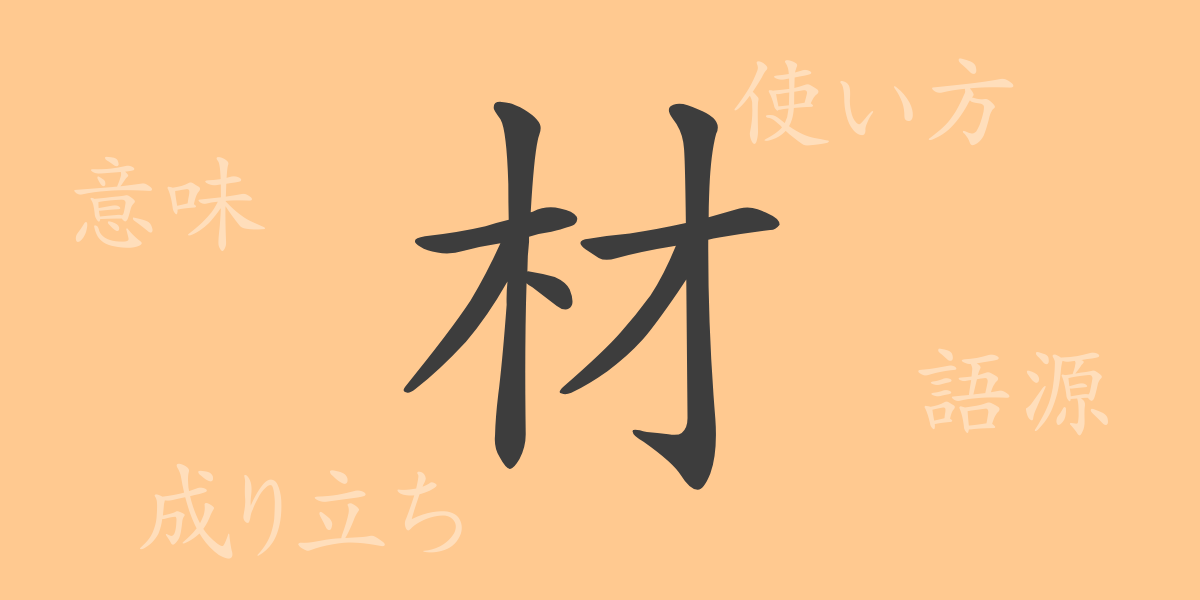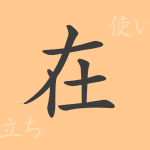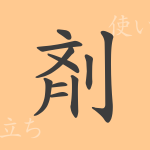Japanese written culture is fundamentally shaped by kanji, which have evolved uniquely over time. Among these, the kanji “材” (zai) is widely used in various fields, from daily life to specialized areas. In this article, we delve into the origins, meanings, usages, and expressions involving the kanji “材” to uncover its charm.
Origins of 材 (zai)
The kanji “材” (zai) is often used to refer to “timber” or “wood,” derived from the act of cutting down trees. This character combines the radical for “wood” (木) with the character for “talent” or “aptitude” (才). It signifies materials used to create something, such as processed timber. In ancient China, it was valued as a material for construction and craftsmanship. Over time, it also came to represent human talent and aptitude.
Meanings and Usages of 材 (zai)
The character “材” (zai) has two primary meanings. One refers to materials or resources used to create something. Examples include “建築材” (kenchikuzai, construction materials) and “食材” (shokuzai, food ingredients). The other meaning pertains to human abilities or talents, as seen in “人材” (jinzai), referring to valuable individuals sought by companies or organizations. These usages span both physical and abstract realms.
Reading, Stroke Count, and Radical of 材 (zai)
Understanding the readings and structural elements of the kanji “材” (zai) is essential for proper comprehension.
- Reading: In the on’yomi reading, it is “ザイ” (zai). It does not have a commonly used kun’yomi reading.
- Stroke count: “材” (zai) has 10 strokes.
- Radical: The radical is “木偏” (きへん, ki-hen), indicating its association with wood or trees.
Idioms, Phrases, and Proverbs Using 材 (zai) and Their Meanings
Many idioms, phrases, and proverbs incorporate “材” (zai), reflecting the richness of the Japanese language. For example, “材料” (zairyō) refers to the specific materials needed to make something, “人材不足” (jinzai busoku) indicates a shortage of necessary personnel, and “材木” (zaimoku) means timber used in construction or furniture making. These terms are deeply rooted in Japanese life and culture.
Conclusion on 材 (zai)
The kanji “材” (zai) is used in diverse contexts, encompassing meanings related to both physical materials and human abilities. As a common-use kanji in Japanese, it is indispensable in daily life. Understanding its deep history and meanings enriches the appreciation of the Japanese language and culture.

























